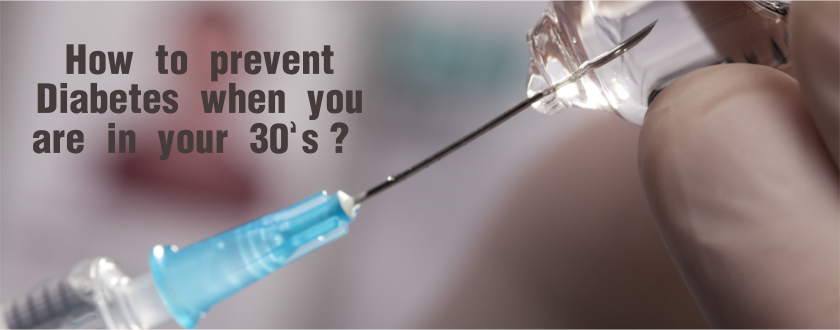It has been a curious question among people with diabetes if they could have done something to prevent getting diabetes or could have been effected by a less severe form of diabetes. In many cases, the answer is yes. Lifestyle choices that are implemented in 20’s and 30’s help us to slow the progression of the disease in later stages of life.
Though a genetic predisposition gives a higher risk of diabetes, numerous measures like regular checkup, lifestyle interventions and following the advice of the doctor could be most helpful in preventing the onset of the disease. The following measures are important in keeping the disease at bay.
Maintaining an average weight for your height- A few extra pounds in 30’s could be the difference between having a healthy life and suffering with diabetes later on. Maintaining an average weight during these decades not only could prevent diabetes in your 50’s and beyond, but could also ward off other serious conditions like heart and joint diseases in later years.
Avoiding alcohol and smoking- Alcohol consumption, and becoming accustomed to this behavior early in life can pose series health risks at that time and down the road, such as difficult-to-treat hypoglycemia. Also alcohol packs on additional pounds from consuming high amounts of empty calories.
Aside from the well-noted health risks associated with smoking, smoking affects the blood vessels and exacerbates any negative effect that elevated sugar has on the heart and circulatory system. The risk of developing micro vascular complication is seriously increased in a person with diabetes who also smokes. This could lead to blindness, kidney failure and amputations. Not only will smoking damage your lungs, but it also increases inflammatory markers, which is implicated in the development of insulin resistance metabolism.
Exercise regularly:
Inactivity promotes obesity, which in turn could result in type 2 diabetes. Exercise helps the insulin on-board to be used more efficiently, and less of it is needed for each meal. Even a 20-minute walk every day will decrease your chance of developing diabetes. Using your muscles improves the ability of the body to use insulin and absorb glucose.
By making small adjustments in your 20s and 30s, you are decreasing the odds of developing diabetes as you age. Remember, it’s during this time that you are laying the foundation for your future health and increasing your chances for a longer, improved life.











